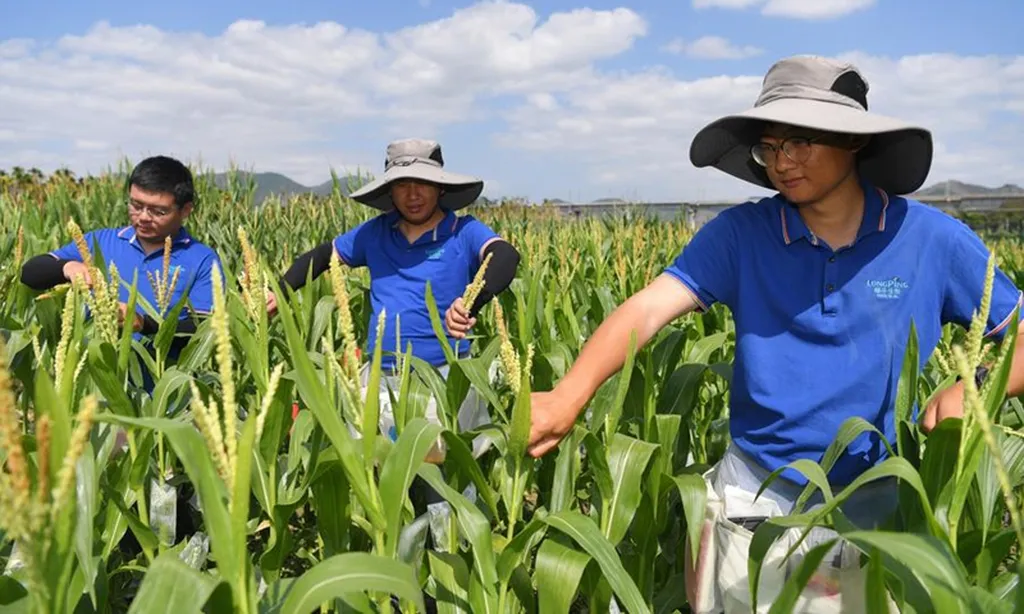In the ever-evolving landscape of agricultural technology, a groundbreaking study led by Yifan Lyu from China Agricultural University has introduced a novel hybrid deep learning framework that promises to revolutionize predator–prey detection in agricultural fields. This research, published in the journal ‘Sensors’ (translated to English as ‘传感器’), addresses a critical challenge in sustainable farming: the accurate identification of predator–pest relationships, which is essential for effective biological control.
The study tackles the limitations of existing image-based methods that struggle to recognize insect co-occurrence under complex field conditions. Lyu and his team propose a hybrid deep learning framework that integrates convolutional neural networks (CNNs) and Transformer architectures. This innovative approach leverages a novel co-occurrence attention mechanism to capture semantic relationships between insect categories and employs a pairwise label matching loss to enhance ecological pairing accuracy.
“Our model not only improves the accuracy of predator–prey detection but also offers a robust and interpretable approach for multi-object ecological detection,” said Lyu. “This has significant implications for smart farming systems, UAV-based monitoring, and precision pest management.”
The model was evaluated on a field-constructed dataset of 5,037 images across eight categories, achieving an impressive F1-score of 86.5% and an mAP50 of 85.1%. Moreover, it demonstrated strong generalization to unseen predator–pest pairs with an average F1-score of 79.6%. These results outperform several strong baselines, including ResNet-50, YOLOv8, and Vision Transformer.
The commercial impacts of this research are substantial. Accurate predator–prey detection can lead to more effective and sustainable pest control strategies, reducing the need for chemical pesticides and promoting ecological balance. This, in turn, can enhance crop yields, improve farm productivity, and contribute to more sustainable agricultural practices.
“By integrating advanced deep learning techniques with ecological principles, we are paving the way for smarter and more sustainable farming practices,” Lyu added. “This research offers practical potential for deployment in various agricultural technologies, ultimately benefiting farmers and the environment alike.”
As the agricultural sector continues to embrace technological advancements, this research by Lyu and his team at China Agricultural University represents a significant step forward. The hybrid deep learning framework not only addresses current challenges in predator–prey detection but also sets the stage for future developments in agricultural computer vision and intelligent pest control.
With the publication of this study in ‘Sensors’, the agricultural community now has a powerful tool to enhance ecological monitoring and pest management, ultimately contributing to more sustainable and productive farming practices. The research underscores the potential of integrating advanced technologies with ecological principles to address real-world agricultural challenges.

